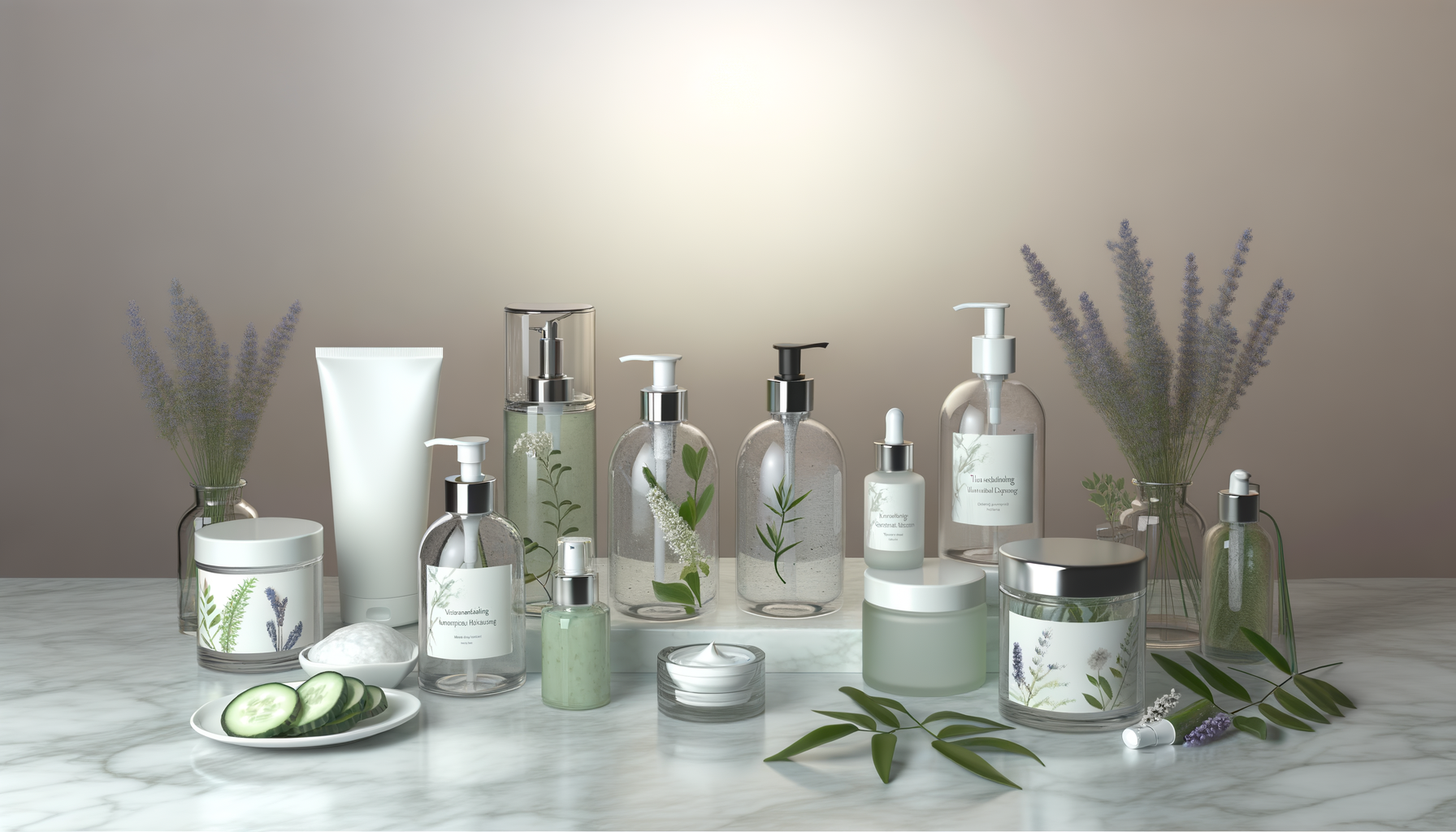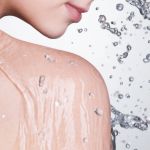Introduction to Skincare Ingredients
The Importance of Understanding Skincare Ingredients
Skincare is more than just a routine; it’s a commitment to nurturing your skin, the body’s largest organ. Understanding the ingredients in skincare products is crucial for several reasons. It empowers consumers to make informed choices, ensuring that the products they use are safe, effective, and suitable for their skin type. With the skin’s ability to absorb substances, knowing what goes into your skincare can help prevent adverse reactions and promote long-term skin health.
Common Misconceptions About Skincare Products
One common misconception is that if a product is available on the market, it must be safe. However, not all ingredients are created equal, and regulatory bodies have varying standards for safety. Another myth is that natural or organic ingredients are inherently better, but this is not always the case. Some natural ingredients can be irritating or allergenic. It’s essential to look beyond the marketing hype and understand the science behind the ingredients.
The Impact of Ingredients on Skin Health
The ingredients in skincare products can have a profound impact on skin health. Active ingredients like retinoids and vitamin C can significantly improve skin appearance, while others like sulfates and certain alcohols can be drying or irritating. Ingredients such as Carbomer are used to enhance the texture and stability of products, ensuring they deliver active ingredients effectively. Understanding these components allows users to tailor their skincare regimen to their specific needs, leading to better outcomes.
Navigating the World of Skincare Labels
Navigating skincare labels can be daunting. Ingredients are listed in order of concentration, with the first few ingredients typically making up the bulk of the product. It’s important to identify key actives and recognize any harmful or controversial ingredients. Terms like ‘fragrance’ can be misleading, as they can encompass a range of undisclosed chemicals. Learning to decode ingredient labels is a skill that can lead to more conscious skincare choices and better results.
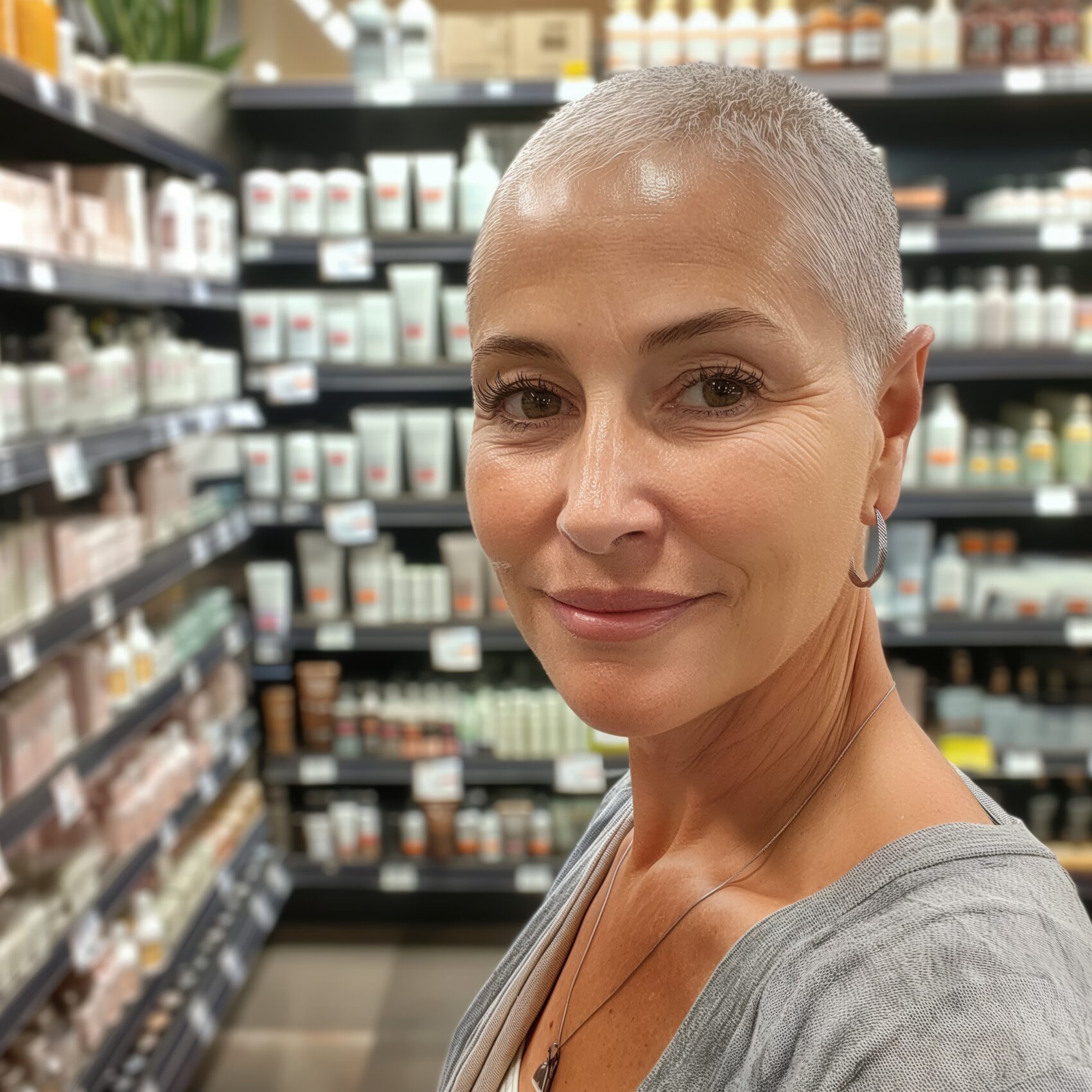
Finally Peace of Mind! NO more worries, no more hassle in checking the labels of creams and lotions.
I found skin care and beauty without chemicals. Chemicals in skin care are hormone disruptors and could turn out very bad for me. I need to stay away from them.
Safe ingredients, no doubts, no compromises and no false promises.
Decoding Ingredient Labels
Understanding the Order of Ingredients
When it comes to skincare, the order of ingredients on the label is not arbitrary; it’s a reflection of the concentration in the formula. Ingredients are listed in descending order, starting with the highest quantity. This means that the first few ingredients typically make up the bulk of the product. It’s important to note that ingredients present at less than 1% can be listed in any order after those in higher concentrations. This knowledge allows consumers to assess the potency of key ingredients and understand what they’re applying to their skin.
Identifying Key Active Ingredients
Active ingredients are the backbone of a skincare product’s efficacy. These are the components specifically intended to address particular skin concerns, such as hyaluronic acid for hydration or salicylic acid for acne treatment. Identifying these actives is crucial for consumers to choose products that align with their skin goals. However, it’s not just about spotting these ingredients; concentration matters. For instance, dermatologists often recommend products with at least 0.5% to 2% salicylic acid for acne control.
Recognizing Harmful and Controversial Ingredients
Amidst the beneficial components, some ingredients have sparked debate over their safety. Parabens, phthalates, and certain sulfates are often flagged for their potential health risks. While not all are universally condemned, being informed about these controversial ingredients empowers consumers to make choices that align with their comfort levels and health standards. For example, those with sensitive skin may opt to avoid products with synthetic fragrances, which can be irritating. What’s generally unknown is that water (aqua, h20, juice) is a really bad ingredient in the sense that water will make chemical preservatives necessary to make the product shelf-stable. Put simply: if a product contains water, it’ll come with chemicals.
The Role of Preservatives and Their Natural Alternatives
Preservatives are essential for preventing microbial growth and extending a product’s shelf life. However, it’s better to avoid synthetic preservatives (not only parabens, formaldehyde-releasers, etc), but all of them. Ultimately, once a certain chemical in skincare get a bad reputation amongst consumers, it is replaced with a different chemical that does not have enough (public) data yet to give it a bad rep. Natural alternatives are gaining popularity. While these may appeal to the clean beauty enthusiast, it’s important to recognize that natural preservatives can have limitations in efficacy and may contribute to a shorter product lifespan. The far better approach is to eliminate water from the formulas so that preservatives become unnecessary.
Natural and Organic Ingredients
Benefits of Natural and Organic Ingredients
The quest for healthier lifestyles has extended into the realm of skincare, with consumers increasingly seeking out products that contain natural and organic ingredients. These ingredients are derived from sources like plants, minerals, and oils, and are cultivated without the use of synthetic pesticides, herbicides, or genetically modified organisms (GMOs). The benefits of incorporating natural and organic ingredients into skincare routines are manifold:
- Safety: They are generally gentler on the skin, reducing the risk of irritation and allergic reactions often associated with synthetic additives.
- Efficacy: Many natural ingredients are rich in antioxidants, vitamins, and minerals that nourish the skin.
- Environmental Impact: Eliminating water and chemicals in the formulations, together with proper farming practices promote biodiversity and soil health, contributing to environmental sustainability.
Popular Plant Butters and Oils in Skincare
Plant butters and oils have become staples in skincare formulations due to their emollient properties and nutrient content. Some popular options include:
- Shea Butter: Known for its moisturizing and anti-inflammatory properties.
- Cocoa Butter: Helps to form a protective barrier over the skin to lock in moisture.
- Kokum Butter: Highly moisturizing, helping to restore dry and damaged skin.
- Argan Oil: Rich in vitamin E and essential fatty acids, it’s prized for its hydrating and anti-aging effects.
The Truth Behind ‘Organic’ and ‘Natural’ Labels
While the terms ‘organic’ and ‘natural’ are appealing, it’s important to understand their definitions and regulations:
- ‘Organic’: This label indicates that the ingredients were grown and processed according to specific standards that limit the use of synthetic materials.
- ‘Natural’: A less regulated term that generally means the ingredients are derived from natural sources, but it does not guarantee the absence of synthetic substances.
- ‘All-Natural” or ‘Chemical-free‘: A clear cut term that ensures that all ingredients are natural, none of them synthetic, and absolutely zero synthetic chemicals have been added into the product.
How to Verify the Authenticity of Natural Ingredients
To ensure the authenticity of natural ingredients in skincare products, consumers can:
- Look at the packaging for logo certifications and logos
- Research the brand’s commitment to natural and organic standards.
- Check the ingredient list for recognizable plant-based components and be wary of long chemical names that may indicate synthetic additives.
- Number one ingredient to avoid: Check if the product contains water, and if it does, don’t use it. Water makes chemicals necessary to prevent microbial growth.
By understanding and seeking out natural and organic ingredients, consumers can make informed decisions that benefit their skin health and the environment.
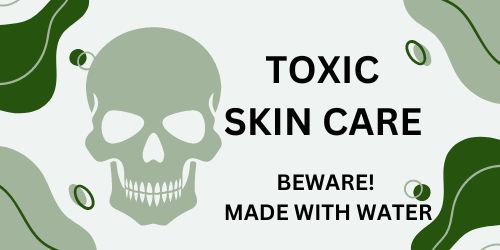
Do you have the most commonly used but toxic, disease bringing chemicals in your skin care? Many chemicals in skincare are hormone disruptors and make menopause symptoms worse.
Find out more…
Chemical-Free and Water-Free Options
The Advantages of Chemical-Free Skincare
As consumers become more health-conscious, the demand for chemical-free skincare products has surged. These products, often labeled as ‘clean beauty,’ or ‘green beauty’ etc exclude certain synthetic chemicals believed to be harmful to health or the environment. The advantages of using chemical-free skincare are numerous. They are generally gentler on the skin, reducing the risk of irritation, allergies, and sensitivities. Moreover, they often contain higher concentrations of natural ingredients, which can be more biocompatible with the skin’s natural biology. By choosing chemical-free options, consumers also support the movement towards more ethical and sustainable manufacturing practices.
Exploring Water-Free Skincare Products
Water-free, or anhydrous, skincare products are gaining popularity for their potency and purity. Without water as a filler, these products are concentrated and can be made without chemical preservatives, which can be beneficial for sensitive skin types. Additionally, water-free products have a longer shelf life and are more sustainable, as they reduce the weight and volume of products, leading to lower carbon footprints during shipping. From balms to oils, these products offer intense hydration and nourishment, as they are packed with vitamins, antioxidants, and essential fatty acids.
Effective Hydration Without Harmful Additives
Hydration is key to maintaining healthy skin, but not all hydrating products are created equal. Many traditional moisturizers contain additives like parabens, phthalates, and synthetic fragrances that can be absorbed into the skin. Water-free options often utilize natural humectants, emollients, and occlusives to lock in moisture without the need for these harmful additives. Ingredients like hyaluronic acid, glycerin, and plant-derived squalane are effective at drawing moisture into the skin and sealing it in, ensuring long-lasting hydration without adverse effects.
Selecting the Right Products for Your Skin Type
When venturing into the realm of chemical-free and water-free skincare, it’s crucial to select products that align with your skin type and concerns. For dry or mature skin, look for rich oils and butters that provide deep nourishment. Oily or acne-prone skin may benefit from lightweight serums or oil-free formulas that hydrate without clogging pores. Sensitive skin types should seek out simple, fragrance-free formulations with minimal ingredients to reduce the risk of irritation. Always patch test new products and introduce them gradually to your skincare routine. By carefully selecting the right products, you can enjoy the benefits of clean and sustainable skincare while addressing your unique skin needs.
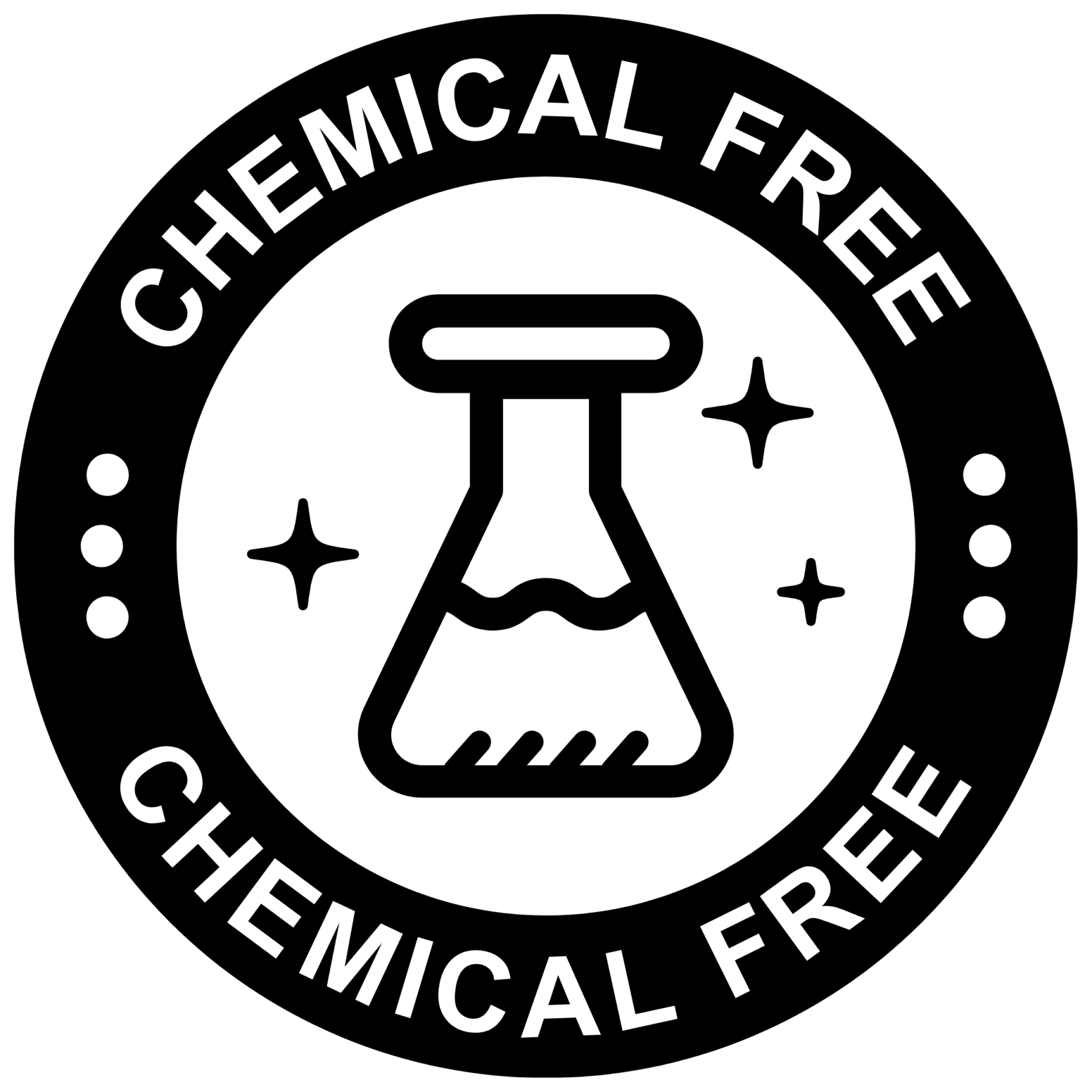
Doubting chemicals in skincare and femcare? Well done! Choose chemical-free products whenever possible.
Sustainability and Ethical Practices
The Connection Between Skincare and Environmental Impact
The beauty industry is not just about enhancing personal aesthetics; it’s also about the impact it has on our planet. The production, packaging, and disposal of skincare products have significant environmental repercussions. From the sourcing of raw materials to the end of a product’s life cycle, each step can contribute to pollution, waste, and the depletion of natural resources. Consumers are increasingly aware of these issues and are looking for brands that prioritize sustainability in their business practices.
Cruelty-Free and Vegan Skincare Choices
For many, ethical skincare goes beyond human benefits to consider animal welfare. Cruelty-free products are those that have not been tested on animals, while vegan skincare excludes all animal-derived ingredients. These choices reflect a growing consumer consciousness towards living a more compassionate and ethical lifestyle. Brands that are certified cruelty-free or vegan often display recognized logos, such as the Leaping Bunny or Vegan Society trademarks, assuring consumers of their commitment to ethical practices.
Packaging and Its Role in Sustainability
Packaging plays a pivotal role in the sustainability of skincare products. Excessive packaging, non-recyclable materials, and single-use plastics are major contributors to environmental pollution. Sustainable brands are turning to biodegradable, recycled, or refillable packaging options to minimize their ecological footprint. By choosing products with sustainable packaging, consumers can help reduce the amount of waste that ends up in landfills and oceans.
Supporting Brands with Ethical Manufacturing Processes
Behind every skincare product is a manufacturing process that can either uphold or undermine ethical standards. Ethical manufacturing involves fair labor practices, safe working conditions, and responsible sourcing of ingredients. Brands that are transparent about their manufacturing processes enable consumers to make informed decisions. Supporting these brands not only promotes ethical practices within the industry but also encourages other companies to follow suit.
By considering the environmental impact of products, opting for cruelty-free and vegan options, choosing sustainable packaging, and supporting brands with ethical manufacturing processes, consumers can contribute to a more sustainable and ethical skincare industry. As we become more knowledgeable about the products we use, we can drive positive change and help ensure a healthier planet for future generations.

Bette 100% All-Natural Relaxing Lavender Body Lotion.
Chemical-Free
Your relaxing night time body moisturizer to leave the day’s stress behind. Decompress and wish your body good night with the calming scent of lavender.
Conclusion: Empowering Your Skincare Choices
Summarizing Key Takeaways for the Savvy Buyer
Throughout this blog post, we’ve explored the intricate world of skincare ingredients, emphasizing the importance of understanding what goes into the products we use daily. We’ve debunked common misconceptions, highlighted the significance of ingredient labels, and discussed the benefits of natural components. We’ve also touched upon the advantages of chemical-free and water-free options, the impact of sustainability and ethical practices, and the power of community and reviews in making informed skincare choices.
Continuing Education on Skincare Ingredients
The realm of skincare is ever-evolving, with new research and innovations surfacing regularly. As savvy buyers, it’s crucial to stay informed about the latest developments in skincare ingredients. This can be achieved through various means, such as subscribing to reputable beauty and wellness blogs, attending workshops, and following thought leaders in the skincare industry. Continuous learning will not only enhance your understanding but also help you adapt your skincare routine to incorporate the most beneficial and cutting-edge products.

Feeling You Have a Right to Safe Beauty & Fem Care?
If so, it may be time for a change. It starts with knowledge. We have a few suggestions in our new guides.
Making Informed Decisions for Long-Term Skin Health
Armed with knowledge, you can make decisions that contribute to the long-term health and vitality of your skin. Remember to consider your skin type, concerns, and goals when selecting products. Don’t be swayed by trends or marketing hype; instead, focus on ingredients and formulations that have proven efficacy. It’s also wise to patch-test new products and introduce them gradually into your routine to minimize the risk of adverse reactions.
Embracing a Holistic Approach to Skincare
Finally, recognize that skincare is just one piece of the puzzle when it comes to overall skin health. A holistic approach that includes a balanced diet, adequate hydration, regular exercise, and stress management can amplify the benefits of your skincare regimen. By embracing a lifestyle that supports skin health from the inside out, you’ll not only see improvements in your complexion but also in your overall well-being.
In conclusion, as a savvy buyer, you are now equipped with the tools and knowledge to navigate the complex skincare landscape confidently. By continuing to educate yourself, making informed decisions, and adopting a holistic approach, you’ll be able to maintain healthy, radiant skin for years to come. Remember, the choices you make today will shape the health and appearance of your skin tomorrow.
